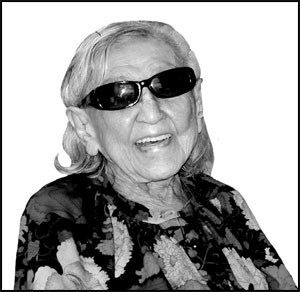- LLBO Home
- Administration
Administration
Child Support Enf.DMVDuluth OfficeEconomic DevelopmentEnrollmentFinancial ServicesFleet ManagementLegal DepartmentMIS
Opioid TreatmentPurchasingSecurityT.E.R.O.TransitTribal DevelopmentTwin Cities OfficeUtilities Commission
Tribal Court
Court HomeCourt FormsCourt FinesCourt Codes
Attorney ProceduresBaMeNim AnishinaabegDiversionTribal Court Awards
Tribal Police
LLTPD HomeAnimal ControlDomestic ViolenceMeth Coordinator Prescription Drug
- Education
- Health Division
Health Programs
AmbulanceBehavioral H.Car Seat ProgramChriopractic, Accupunct.D. Fitness CenterENPEmergency Prep.Environmental HealthFamily Spirit
Food DistributionHome Health CHRMed TransportationNutrition ServicesOccupational HealthPatient BenefitsS.H.I.P.
Elder & Disability Services
Nursing programs
Community ClinicsWadiswan "Nest"WIC
Child & Teen ClinicLL Diabetes ClinicTransform Rez
Health Reports
- Human Services
Addictions & Dependecies Program
A & D ProgramAdolescent OutpatientAhnjiBeMahDis HouseAssessment UnitFamily Violence Prevent
Outpatient TreatmentRecovery MaintenanceRelapse PreventionWomen's Halfway HouseWomen's Services
Child Welfare
Adoption ServicesChild Abuse PreventionChild ProtectionFamily Preservation
Foster CareParent Support ServicesTruancy PreventionYouth Living Skills
Other Human Serviecs Programs
- Res. Services
Reservation Services
EngineeringFacilities ManagementHeavy EquipmentRoads & SurveySanitation
Small Vehicle RepairSolid WasteWell & SepticWell Drilling
Community Services
- Resource Mgmt.
- Tribal Assistance
Tribal Assistance Programs
Services
Elders Chair Interviews
Mary Bellanger Loons Springs to Life at the Sound Of Ojibwe
![]() Printed in the DeBahJiMon January 2004
Printed in the DeBahJiMon January 2004
Interview and photograph by Patsy Gordon
 Todd Therringer, Mary Bellanger Loon’s grandson, thinks that Mary may very well possibly be the oldest living member of the Leech Lake Band of Ojibwe. She is 95 years old and was born on May 11, 1908 in Onigum, Minnesota. Mary now lives in Akeley, Minnesota with two of her sons and one daughter.
Todd Therringer, Mary Bellanger Loon’s grandson, thinks that Mary may very well possibly be the oldest living member of the Leech Lake Band of Ojibwe. She is 95 years old and was born on May 11, 1908 in Onigum, Minnesota. Mary now lives in Akeley, Minnesota with two of her sons and one daughter.
Because Ojibwe is Mary’s primary language, Helen Cummings, another Leech Lake elder, who is fluent in Ojibwe, and gracious enough to assist, came with me to conduct the interview with Mary. Mary’s grandson, Todd says, “She comes to life when she hears Ojibwe.”
Mary seemed to be in very good shape physically and was very cordial with Helen and I. However, when Helen and I went to interview Mary, we were unable to get much information from her because unfor- tunately, Mary’s memory has begun to fade and she could not remember a lot of her past. So much of Mary’s story has been contributed by Todd. A special thanks goes to him for his help.
Born as an only child to John Bellanger and Mary King, Mary’s parents hid her from authorities and never sent her to school because they didn’t trust the teachers. Todd was not sure why Mary was kept hid- den, and when Mary was asked she was not able to recall why either. Consequently, Mary never attended school. She grew up speaking only Ojibwe, although she did pick up some broken English over the years. Mary was lucky enough to have many extended family, that she has considered like brothers and sisters, as her parents took in other children in need in the Onigum area. That was the way things were done in those days. Some of you may remember Leech Lake elder, Josette Johnson, who passed away recently. Mary’s parents raised Josette.
Mary gave birth to her first child, a son, when she was very young, then later gave birth to a daughter, Luella. In her late teens, she married Lawrence Loons who was originally from Fond du Lac. Lawrence died in 1985. She says, “I still miss him once in awhile, he helped me all the time.” Together they had their children, Cecilia, (who was named after the St. Cecilia Catholic Church in Onigum that is now burned down), Louise, David, George, John, Jim, Joann, Dorothy, and Robert. She has outlived her husband and five of her children. Mary has been blessed with 27 grand children and 5 great grand children.
Mary was able to recall her experience with her oldest daughter, Luella, who was born with a cleft palate. Mary said she had a hard time feeding her daughter as a baby and little girl because of this. When the Doctor at Onigum sent Luella to St. Paul for surgery, he told Mary she would not be able to accompany Luella to the hospital. Mary was devastated that she was not able to go and be with her daughter.
Unfortunately, alcoholism destroyed the lives of many of Mary’s other children. Todd says, “Alcoholism shouldn’t be viewed as an individual weakness, because it takes a village to provide the conditions that contribute to an individual’s alcoholism and the spread of the disease. It starts out a societal problem, but ends tragically as an individual problem.”
Mary, as a young woman, used to run to the St. Cecilia Catholic Church whenever it started thundering during a storm. Incidentally, during a thunderstorm this past summer in Akeley, Mary went outside her trailer home and made an offering of tobacco and said some Indian prayers and to the surprise of everyone in the trailer, the thunder stopped. Mary’s daughter, Louise, said, “the thunder quit just like that!”
As we mentioned before, Mary comes to life when she hears the Ojibwe language being spoken, her eyes light up and she becomes very talkative, which was proven during the interview that took place between Mary, Louise, Helen, and I. Todd says she is normally very reserved when it comes to speaking English.
Mary recalled how she used to take care of her grandmother. Mary says, “I used to wash her up and comb her hair.” She said she took care of her grandmother, who couldn’t walk, off and on during the years that she was growing up. Mary says, “That’s why I’m so old now, and can’t walk.” Mary injured her leg in a fall and now, quite often, has trouble with walking. Being raised in a log home where it was nice and warm is Mary’s memory o f growing up. She said, “My Dad watched me, took care of me, he was nice to me.”
She has lived in Akeley since the early 1960’s. Mary lives with her sons, David, and Robert, and daughter Louise, (who take care of her) in a substandard single trailer home that, sadly, has holes in the floor and ceiling, that could easily collapse with a strong wind. Mary is very adamant about staying in the trailer though and does not want to move. Mary’s children have plans to move but fear for her safety, so they dare not leave her alone. Recently, while boiling potatoes on the stove, the sleeve of Mary’s blouse touched a burner and caught fi re. Mary’s arm was burned extensively which required a stay in the hospital for several days and a skin graft. Doctors took skin from Mary’s leg to repair her arm. Louise said, “She gets up at 4:00 in the morning and starts cooking and then I have to get up too to watch her,” for fear of Mary burning herself again. Mary kept repeating, “Robert knows how to cook, he can cook for me.” I believe this was Mary’s way of reasoning with her children so she could remain in her trailer under the watchful eye of her son, Robert.


